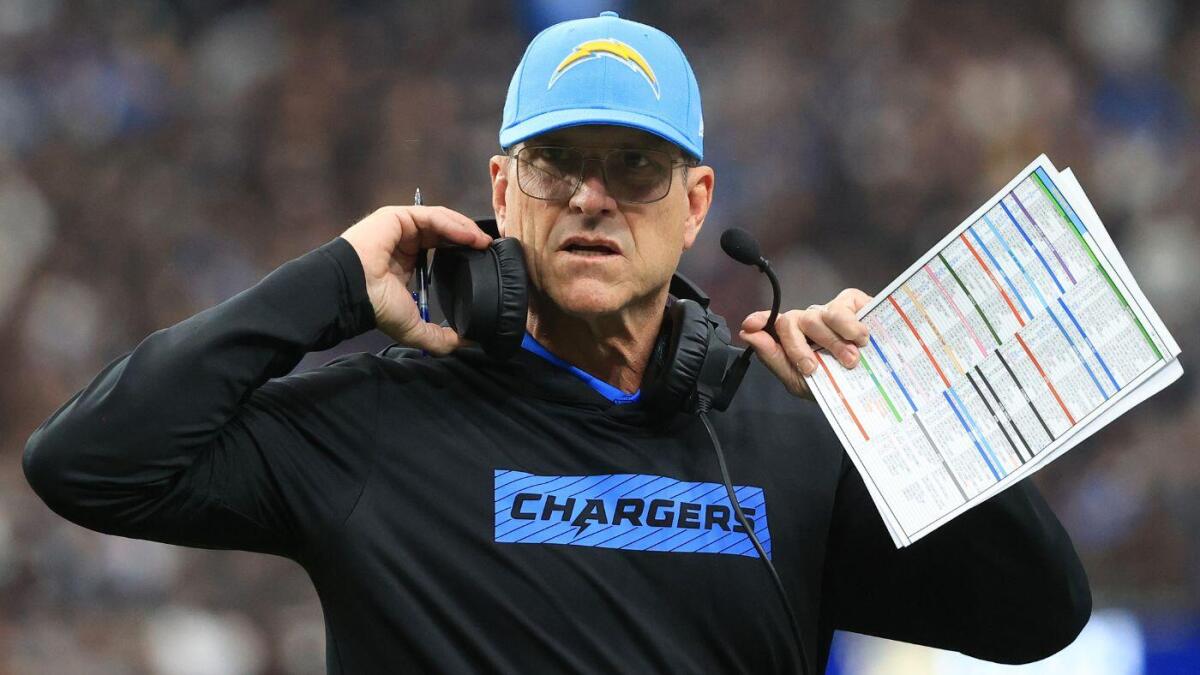Los Angeles Chargers head coach Jim Harbaugh has been named as a defendant in a lawsuit that also involves a former Michigan assistant coach. The lawsuit claims that Harbaugh and other university officials ignored evidence that former coach Weiss was hacking sensitive information before Michigan’s college football playoff game in December 2022.
The updated class-action lawsuit filed by 11 women, representing nearly 50 others, also names Michigan athletic director Ward Manuel and ex-university president Santa Ono. The plaintiffs argue that despite the university’s awareness of Weiss’s illegal actions, he was still allowed to coach the College Football Playoff semifinal at the Fiesta Bowl against TCU. Harbaugh has said he was unaware of these allegations until after the Fiesta Bowl.
The court filing states that the university prioritized the football team’s interests over those of the female victims, further discriminating against plaintiffs and lower-ranking staff members.
Weiss was suspended by the university in January 2023 and later terminated after campus police investigated unauthorized email access. In March, Weiss was charged with 14 counts of unauthorized computer access and 10 counts of identity theft. He allegedly hacked into databases of more than 100 universities and obtained personal information on over 150,000 student-athletes, breaking into over 2,000 social media, email, and cloud accounts. The suit also claims he expanded his hacking focus to include non-athlete students and alumni, particularly targeting female college athletes.
Weiss joined Michigan’s staff as a quarterback coach under Harbaugh in 2021 and was promoted to co-offensive coordinator the following year. Before working in college football, he spent over ten years with the Baltimore Ravens in the NFL, where he worked under John Harbaugh, Jim’s older brother.
Fan Take: This lawsuit not only puts a prominent NFL-related coach under scrutiny but also highlights serious ethics and privacy issues in collegiate sports. For NFL fans, it raises concerns about the integrity and security of athlete information and could have lasting impacts on how technology and personal data are managed across all levels of football.



